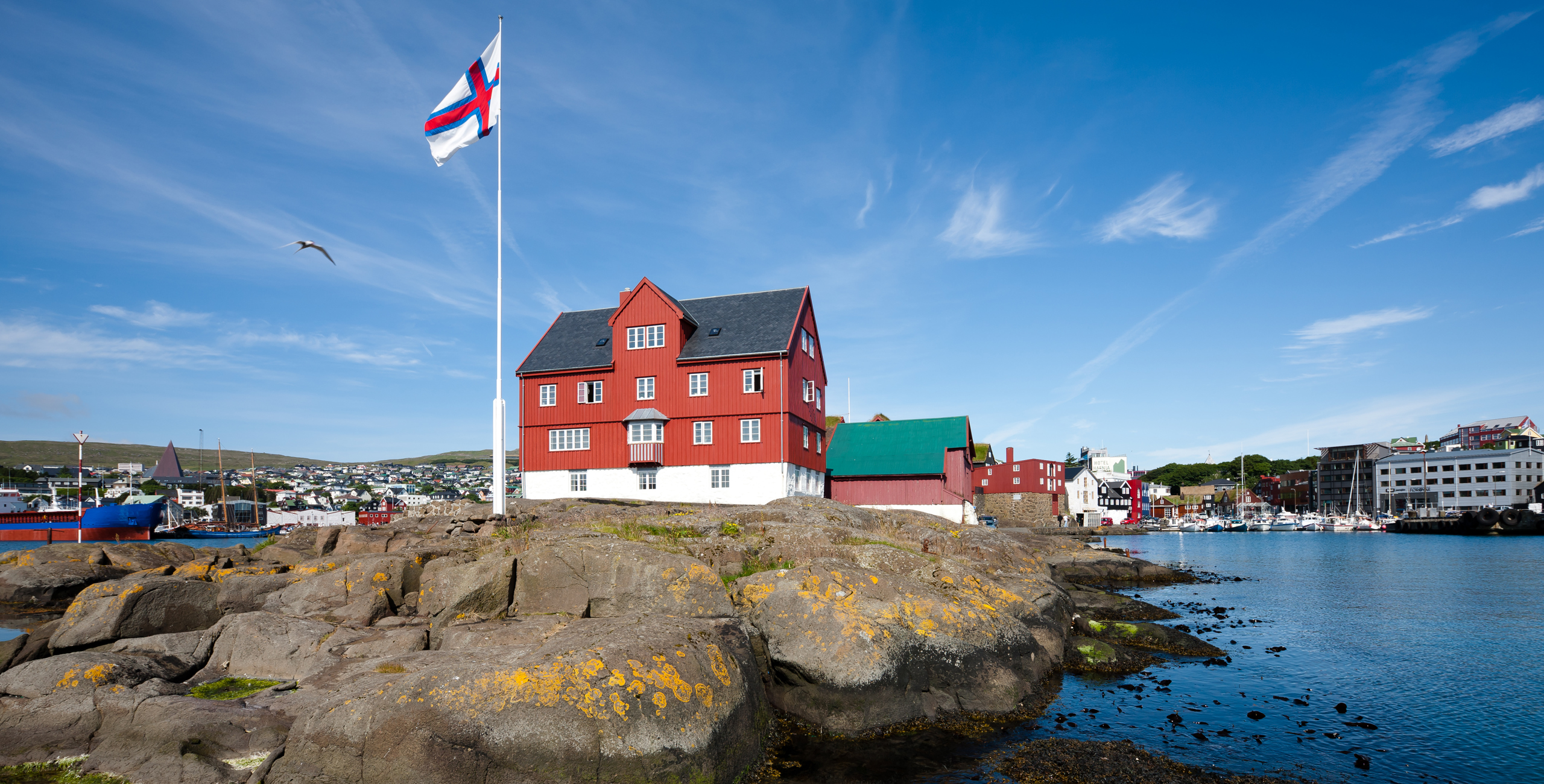
The Faroe Islands are a self-governing nation with a high degree of autonomy encompassed by the external sovereignty of the Kingdom of Denmark.
The political system is a variation of the Scandinavian style of parliamentary democracy. The legislative assembly, the Løgting, is one of the oldest parliaments in the world. It consists of 33 members serving for a period of four years. They are elected by popular vote and the Faroe Islands vote as a single constituency.
The executive government, Føroya Landsstýri, is headed by the Prime Minister, known in Faroese as løgmaður.
Additionally, two Faroese representatives are elected to the Danish Parliament in Copenhagen.
The Faroes Islands have the exclusive right to legislate and govern independently in a wide range of areas, including; the conservation and management of living marine resources within the 200-mile fisheries zone, protection of the environment, sub-surface resources, trade, fiscal and industrial relations, taxation and customs, energy, transport, communications, social security, culture, education and research.
Faroese autonomy in foreign relations is provided for by a treaty between the Faroe Islands and Denmark, the Foreign Policy Act from 2005.
The Foreign Policy Act gives full powers to the Government of the Faroes to negotiate and conclude agreements under international law on behalf of the Kingdom of Denmark where such agreements relate solely to matters that have been fully transferred to the Faroese Authorities.
These include, in brief: external trade relations, customs, taxation and financial policy, business regulation, conservation and management of fisheries and all other utilisation of natural resources, energy and the environment, the labour market, social security, emergency preparedness, education, research and culture.
The Faroese court system is under the jurisdiction of the high courts in Denmark.
General Elections
After the election the Løgtingsformaður (the speaker of the parliament) gives the initiative to start negotiations on forming a government to the party leader with the largest number of parliament members - from his own party and possibly also from other parties - behind him or her.
At present six parties are represented in the Løgting. A distinctive feature of Faroese politics is the division across two axes. There is the socio-economic left-right divide and a union-independence divide.
In the 2022 General Election the voter turn-out was 88.1 % of the total electorate of 34,358 voters.
Parliamentary election results the 8th of December 2022:
• Fólkaflokkurin (The People‘s Party), 18.9 percent, 6 seats
• Sambandsflokkurin (The Union Party), 19.9 percent, 7 seats
• Javnaðarflokkurin (The Social Democratic Party), 26.5 percent, 9 seats
• Sjálvstýri (The Self-Government Party), 2.7 percent, 0 seat
• Tjóðveldi (The Republican Party), 17.6 percent, 6 seats
• Framsókn (The Progressive Party), 7.5 percent, 3 seats
• Miðflokkurin (The Centre Party), 6.5 percent, 2 seats
Municipalities
At the local government level the Faroe Islands are divided into 30 municipalities. Tórshavn is the largest with a population of approx. 20,000. Second is Klaksvík with approx. 5,000. The municipalities are run by publicly elected councils, and have taxation powers of their own.